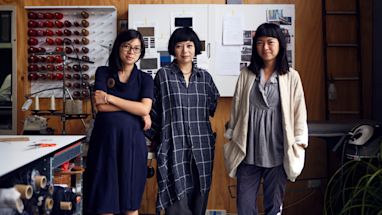Extreme weather events have become frequent in Australia, with many parts of the country battling severe droughts, intense heat and unseasonal hailstorms.
Climate change is arguably one of the biggest challenges facing cities today. And it’s been a hotly debated topic at the City of Sydney’s public speaker series, CityTalks.
CityTalks invites leading industry experts and creative thinkers from around the world to discuss global and local city issues.
Here’s what four experts had to say about climate change when they took to the stage.
Dr David Suzuki on the next steps for sustainable cities

Environmental campaigner Dr David Suzuki has been tireless in his efforts to convince governments around the world about the urgent need to reduce carbon emissions.
“We’re at an absolutely unprecedented and critical moment in all of human history,” he said. “What we do or do not do in the next few years could very well determine the fate of our species.”
Dr Suzuki believes we’re guilty of undermining the natural resources we depend on as human beings.
“As biological beings we have an absolute need for clean air, clean water, clean soil and clean energy from the sun. Without those things, we either sicken or we die… We’re undermining the very things that keep us alive and healthy, the life support system.
“I believe nature will be far more forgiving than we deserve, but the important thing is that we have to pull back very quickly and give her a chance.”
Embedded content: https://player.whooshkaa.com/player/episode/id/274990?visual=true&size=large&sharing=falseDr Connie Hedegaard on the politics of climate change

Former EU Commissioner for Climate Action Connie Hedegaard has been a key figure in keeping climate change at the top of the EU and international agenda.
For her, binding targets and domestic action are key to climate progress.
“You won't make yourself a low-carbon society by offsetting what you should be doing and buying projects in other countries,” she said. “You have to start the very difficult job of transforming your own sectors.”
But it’s not just the actions of businesses, politicians and governments that matter, according to Dr Hedegaard.
“You also have a responsibility as consumers and as concerned, informed citizens,” she said. “In your daily life, your daily choices, your daily practices, you send signals to your politicians and to industry whether you care or not – you have a tremendous power.”
Embedded content: https://player.whooshkaa.com/player/episode/id/275004?visual=true&size=large&sharing=falseDr John Hewson on political leadership in the face of climate change

Former Liberal leader Dr John Hewson describes leaving the challenges of climate change to future generations as ‘intergenerational theft’.
“Politics in my lifetime has becoming increasingly short term, increasingly opportunistic, increasingly populist,” he said. “So the big issues do not get addressed. They're left to drift and we pass the legacy of that failure to address those issues onto the next generations.”
Dr Hewson recognises behavioural changes take time, but argues the urgency of the matter isn’t being recognised by government leaders.
“I think it’s true to say that we are at or very close to a tipping point where it will become too late to change behaviour to achieve net zero emissions by 2050, and I think that’s a major tragedy.
“You see politicians kicking the issue down the road as if they believe that the aim – for example, of net zero emissions by 2050 – it’s as if they believe they can wait till 2049 and then suddenly get up and make the changes that are required. And, of course, that isn't the case.”
Embedded content: https://player.whooshkaa.com/player/episode/id/275021?visual=true&size=large&sharing=falseChristiana Figueres on how local action can fast-track global change

A world authority on climate change, Christiana Figueres was a driving force behind the historic 2015 Paris Agreement. For her, climate change is not a political issue.
“This is certainly not about partisan politics, it’s not about turning left or turning right – this is about the long term intergenerational justice; that is what it is about,” she says.
She points out the world’s economy and growth is transitioning away from fossil fuels.
“The pendulum is beginning to swing away from coal,” she said. “I was taught in school that geopolitics was very, very linked to fossil fuels because those countries that own the fossil fuels really are the powerhouses of the world.”
“The shift of economic power is now moving away from those who own fossil fuels to those countries that own the minerals and the rare elements that are going to be used for new technologies.”
Embedded content: https://player.whooshkaa.com/player/episode/id/274996?visual=true&size=large&sharing=falseThe City of Sydney’s CityTalks podcast series features highlights from our CityTalks public speaker series, recorded live at Sydney Town Hall.
The podcasts feature experts and creative thinkers from around the world who challenge our way of thinking and present innovative ideas on global and local city issues.
Hear from other speakers who are passionate about enhancing life in our cities with the CityTalks podcasts for iOS and Android.
Published 12 November 2018, updated 13 November 2018



